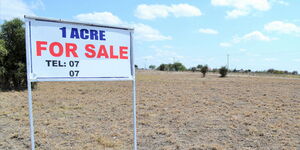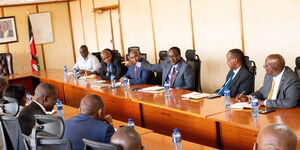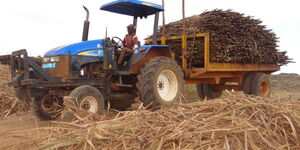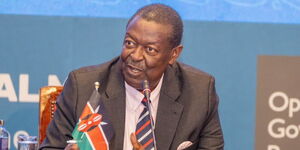The Kenya Wildlife Service (KWS) is facing opposition over its proposed increase in park entry fees, with stakeholders in the tourism sector urging that while they support the increase, it is too high and might negatively impact the sector.
KWS, which is currently undertaking public participation across the country, held a session in Makueni County, the 16th county so far, where stakeholders expressed support for the increase, but noted that there was a need for the increase to be reduced.
Speaking during the public participation forum on Thursday, August 7, Diana Muli, Director of Tourism for Makueni County, suggested a lower percentage increase would be more appropriate at this time.
Muli revealed that there was a need to balance between revenue collection and park accessibility.
“As a Directorate, we support the increase. However, we feel that a lower percentage increment would be more reasonable. For example, if you take Tsavo, Ksh1,000 might be a bit high, too steep for many domestic tourists. That is why we are proposing a lesser increase,” Muli said.
Echoing Muli’s sentiments, fellow stakeholder Richard Kioko supported the park fee increase, noting that it would benefit both the country and the county. However, he maintained that the proposed hike should be slightly reduced to ensure it remains fair and sustainable.
“This would be beneficial for this county, especially because we are near the Tsavo and Amboseli Parks. However, let the increase not be too high to discourage tourists,” he said.
Currently, the entry fee for Tsavo East and West for Kenyan Citizens stands at Ksh515 for adults and Ksh215 for children. However, the increment proposes Ksh1,000 and Ksh500 which reflects a 100 percent increase from the current rates.
Recently, KWS proposed to increase park fees under the draft Wildlife Conservation and Management (Access and Conservation Fees) Regulations, 2025.
Speaking during the public participation forum, a section of citizens hailed the increase, revealing that they would help in revenue collection and part management.
People with disabilities also hailed the regulations since they exempt them from paying the fees.
With the new regulations, KWS is seeking to close a Ksh12 billion annual funding gap, which has hindered conservation efforts and infrastructure upgrades.
The agency currently generates Ksh7.41 billion from park fees, but projections show this could rise to Ksh16.58 billion by 2028 under the new pricing model.












